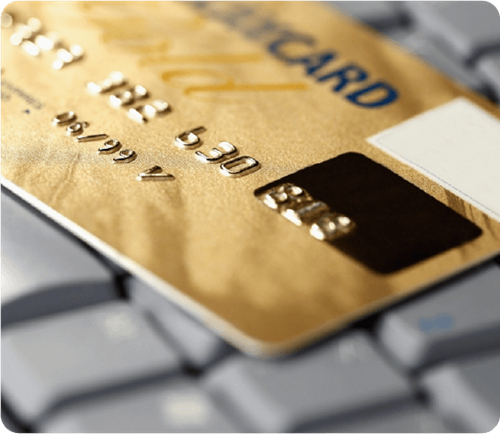What are card scheme fees and what are they for?
Scheme fees are a common thing in debit and credit card payment processing, but what are they and why should you care?
Card scheme fees are a common thing for businesses accepting card payments either in store or online.
But what exactly are they? And why are you paying them if you’re using a card machine or online payment gateway for your business?
It’s a question we get asked a lot.
In this blog we’ll go through the basics of card scheme fees, give you a better idea of what they are, how they’re charged, why you get charged them and who is involved in the process of a card scheme.
What are card scheme fees?
Card scheme fees are essentially membership fees paid by banks to be part of a payment network linked to different types and brands of payment cards like debit and credit cards.
They can also be paid by any financial institution that is able to issue debit or credit cards to customers.
By paying the fees and joining a card scheme, banks and members have the right to issue cards, or acquire merchants operating on the network of that card scheme.
For example, a bank can offer customers Visa debit cards by joining Visa’s card scheme.


How are card scheme fees charged?
The fees are paid by banks or financial institutions to join the individual card schemes available to them.
These fees are then passed by the bank on to the merchant (you) through card merchant fees.
You’ll find that these are usually paid per transaction as a percentage, or a bundled charge every month.
Three-party scheme
As the name suggest, a three-party scheme consists of three main parties:
- The cardholder (the customer)
- The merchant (the business)
- The issuer and acquirer (the bank)
This type of scheme works under a franchise system, which means there is only one type of card allowed in the scheme at one time. American Express is an example of this.
Because it’s a franchise scheme it limits competition because there can be only one franchisee in each market.
Four-party scheme
The main difference with a four-party scheme is that in this model, the card issuer and acquirer are separate entities.
This means that the scheme is open for other institutions to join and issue their own cards within the network.
There’s no limit to which card issuer can join the scheme, as long as they meet the minimum requirements so there’s often more competition.
Four-party schemes are more widely used in the payment industry because they offer the best choice of products. They include card brands like Visa, Mastercard and Union Pay.
Who’s involved in card schemes?
Many of the parties involved in card schemes are the same, with some differences between those accepting payments in person with a card machine, and those accepting payments online.
The usual parties involved are:
The cardholder - This is typically the customer who is issued with a debit or credit card by their bank to pay for items.
The merchant - This is you as the business accepting payments via card either in store or online. Your account is the ultimate destination for payments to go to once they’ve been processed.
To accept card payments you’ll need a card machine and merchant account, and to accept online payments you’ll need to sign up to a payment gateway and an acquirer to process payments for you.
Payment gateway, merchant account, card machine provider
For online payments a payment gateway provides a platform for customers to enter their card details in order to pay.
To accept card payments in person, you’ll need a card machine provider to issue you with a physical card machine to collect payment and card information to be forwarded to the acquirer.


The acquirer
In all card schemes the acquirer is responsible for processing payments and making sure money is getting transferred from the customer’s bank account to the merchant’s account.
When the payment info comes to them, the acquirer will contact the cardholder’s bank to make sure the customer is using a valid payment card, and that they have the funds in the account to clear the payment.
This is known as the ‘authorisation’ phase.
Once the authorisation is complete, the acquirer holds the amount on the cardholder’s account to ensure they can cover the purchase.
You might have seen on your own account statement ‘balance including pending payments’ which is usually lower than the total balance. That’s because the additional funds have been reserved for payment, but haven’t been taken yet.
The issuer
The card issuer is usually the customer’s own bank that has issued them with the payment card. The bank will pay the initial card scheme fee to be able to provide customers with different card products, like either a Visa or Mastercard.


The card scheme
Finally you have the card scheme that the card issuing banks have signed up to. Each card scheme is linked to a specific brand of payment card like Visa or Mastercard.
By signing up to the card scheme, the bank will be able to offer customers the brand of card associated with that scheme.
This is ultimately where card scheme fees go.
Card scheme fees are just one of the potential fees you could pay when you start accepting card payments. Read our complete guide to card payment fees to find out the others.
Got more questions about your card fees or think you should be paying less?
Get in touch with us today and one of our expert advisors can help you find out if you could save money by switching to Handepay as your card machine provider.
We offer transparent fees so you always know what you’re going to pay when you switch to us.
Find out more today and see how much money you could save by switching your merchant services to Handepay.
Would you like
a callback?
FIND OUT MORE
Talk to an advisor today...



